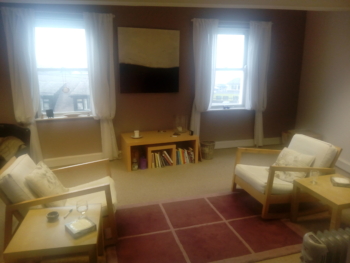What is counselling and how does a counsellor work are common questions to ask if you are thinking about personal change. A counsellor’s role is very different to that of friends or family. Talking to family can be difficult as we may feel obligated to protect them from our anxiety and worries. We may know that complete honesty is not welcome, so we sugar the pill a little or a lot. A friend, by definition, has a vested interest in the friendship and we may find ourselves censoring information or minimising our anxiety to protect the friendship. Adopting a persona or mask in life is very common, for example, “I’m a person who can handle anything life throws at me” which can make it difficult to admit to any struggle that does not fit with this kind of persona. Counselling support allows you to explore any persona you have adopted in life and to determine if they have outlived their usefulness. Human beings are a mass of contradictions, desires, hopes, dreams and struggles. Taking time to engage in some personal exploration is an act of profound courage and is an act that will over time be rewarded, although this may be in ways we find difficult to predict at the outset. While many seek counselling in the expectation that the counsellor will ‘sort out’ their problems and offer a fix, it is the client themselves who does the work. The counsellor provides a space grounded in non-judgement, empathy and honesty which facilitates the work. As Kahil Gibran wrote in the prophet ‘No man can reveal to you aught but that which already lies half asleep in the dawning of your knowledge’. What is counselling and how does a counsellor
Tag: counselling
Self Care Matters
Self Care matters. Practicing Self-Care is an essential not a luxury. Anxiety is a normal response to some life events like doing exams or a job interview. Learning some positive coping skills and practicing self-care in positive ways on a daily and weekly basis will keep anxiety in a manageable way. It is easy when we are busy to lose track of self-care but this is not a luxury to squeeze in when we have nothing else to do. It is a physical and psychological necessity. We can’t give to others unless we learn to give to ourselves. In the words of Lucille Ball, ‘Taking good care of yourself means the people in your life receive the best of you, not what’s left of you’.
☐ Notice when your thinking is negative/distorted thoughts. These thoughts create our world. They directly affect our feelings and our actions and self-confidence.
☐ Keep a confidence diary; make a note of the things that you do well. Surround yourself with people who see the best in you. Let go the negative. Practice self-compassion; acknowledge when you have done your best.
☐ Time spent in nature is proven to be great for our moods. Make a date regularly to get outdoors; focus on your senses; what you see, smell, hear, touch when in the natural world.
☐ Nurture your body with healthy, fresh foods from all the food groups. This will give you the energy you need to get through the day. There’s no such thing as a ‘bad’ food, only bad quantities!
☐ Practice mindful breathing morning & evening. Place one hand on your abdomen and one hand on your heart. Inhale deep and exhale slowly through your nose. Repeat 10 times with your eyes closed. This reduces the ‘fight-or-flight response.’
☐ Make a date with your bath. Have a soak that focuses on relaxation with essential oils or a nice bathfoam. Turn off your phone. Cover your limbs with a nice moisturizer. By slowing down and moving with awareness, you can make it a meditative practice, not a chore.
☐ If you find your racing mind is preventing you from sleeping, try writing a journal of your thoughts, feelings, and stuff that is bothering you. This can help you to clear your mind and sleep better.
Have a gratitude practice; reflect on 3 things at the end of every day that you are grateful for. It may be as simple as a chat with a neighbor.
☐ If you have trouble sleeping, try a few drops of a relaxing essential oil on your pillow or rub a few drops of lavender oil and vetivert onto the soles of your feet. These are two oils that can be applied to the body directly in small amounts. Take advice if pregnant.
Notice when you are taking on too much; recognize your limitations, try to delegate and practice the power of a positive no.
